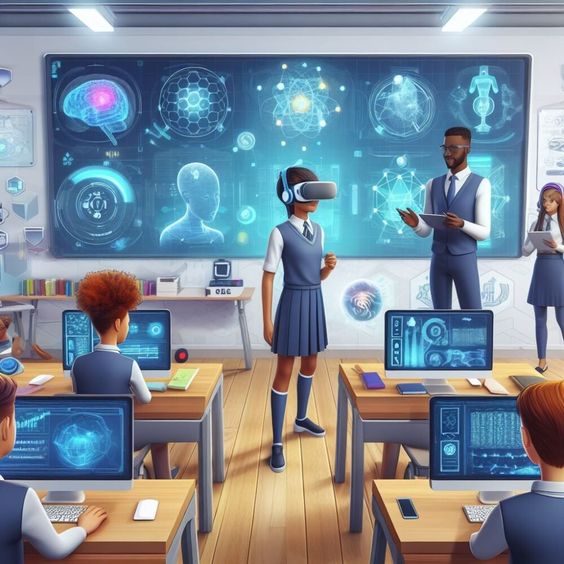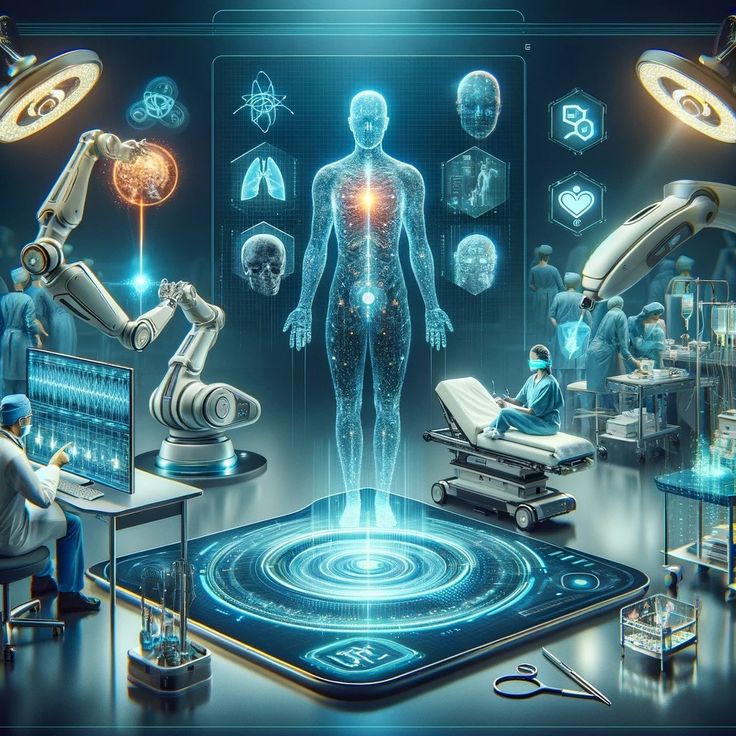
AI in the education field
- Education
- Nov 29, 2021
Integrating artificial intelligence (AI) into educational systems has the potential to revolutionize the way students learn and educators teach. This integration not only enhances traditional teaching methods but also opens up new avenues for personalized learning, adaptive assessments, and overall student engagement.
One of the most significant advantages of AI in education is its ability to provide personalized learning experiences tailored to each student's needs and learning style. Through sophisticated algorithms, AI systems can analyze vast amounts of data on students' performance, preferences, and progress, enabling teachers to offer targeted interventions and support. For example, AI-powered adaptive learning platforms can dynamically adjust the difficulty of learning materials based on a student's proficiency level, ensuring that they are appropriately challenged and motivated to learn.
Moreover, AI can facilitate the creation of immersive and interactive learning environments that captivate students' attention and foster deeper understanding. Virtual reality (VR) and augmented reality (AR) technologies, powered by AI, can simulate real-world scenarios and enable students to explore complex concepts in a hands-on manner. Whether it's exploring ancient civilizations in VR or dissecting virtual organisms in biology class, these immersive experiences make learning more engaging and memorable.
Additionally, AI-driven educational tools can assist teachers in developing more effective lesson plans and instructional strategies. Natural language processing (NLP) algorithms can analyze educational materials and provide insights into their effectiveness, helping teachers identify areas for improvement and tailor their teaching approach accordingly. AI-powered chatbots and virtual teaching assistants can also provide instant feedback and support to students, freeing up teachers' time to focus on more personalized interactions and mentorship.
Furthermore, AI can play a crucial role in assessing students' progress and identifying areas where they may need additional support. Machine learning algorithms can analyze students' performance on assignments, quizzes, and exams, detecting patterns and trends that may indicate areas of strength or weakness. By providing timely feedback and personalized recommendations for remediation, AI-powered assessment tools empower students to take ownership of their learning journey and make meaningful progress towards their educational goals.
However, it's essential to recognize that integrating AI into education comes with its challenges and ethical considerations. Ensuring equity and inclusivity in AI-powered educational systems requires careful attention to issues such as data bias, privacy concerns, and digital divide. Additionally, maintaining human oversight and accountability is crucial to prevent AI algorithms from perpetuating stereotypes or reinforcing inequities.
In conclusion, integrating AI into education holds immense potential to enhance teaching and learning outcomes in schools worldwide. By leveraging AI technologies to personalize learning experiences, create immersive learning environments, support teachers, and assess student progress, we can unlock new opportunities for educational advancement and empower students to succeed in the 21st century and beyond. However, it's essential to approach AI integration in education thoughtfully, ethically, and inclusively to ensure that all students can benefit from these transformative innovations.
How will AI Care will help better your field



